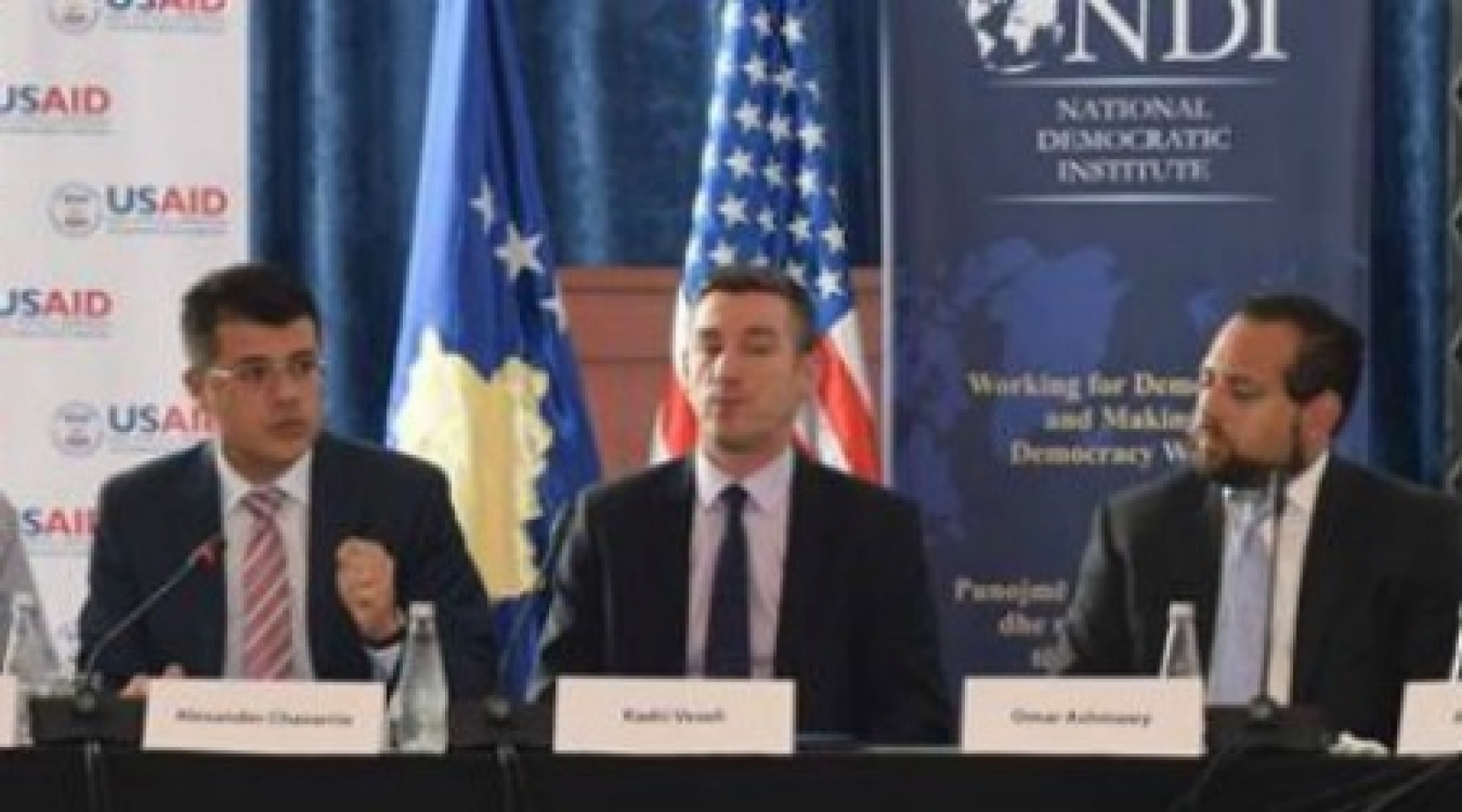
SHARE
The Assembly of Kosovo faces its most critical democracy test since Kosovo declared independence in 2008. Partisan battles over forming a government after inconclusive elections in 2014 have led to an extended period of political instability, and ultimately to political turmoil in parliament. Opposition members have repeatedly unleashed tear gas during session to block proceedings related to contested provisions of an agreement normalizing relations with Belgrade. All political parties, whether in government or in opposition, need to handle sensitive political issues in a more responsible, consultative, and transparent manner.
NDI public opinion research shows that, in general, citizen trust is at all-time lows in both parliament and in the political establishment as a whole. Frustrated by slow economic progress and corruption, the public wants results, not rancor, from elected leaders. Albert Krasniqi of the Kosovo Democratic Institute described the roots of the mistrust: “Over the years, we’ve heard members of the Assembly using un-parliamentary language, we’ve seen them getting involved in illegal activities, we’ve seen members discussing and voting on legislation that directly affects their personal business interests, or members that teach at private universities voting for accreditation of the same institutions that pay salary to them.”
NDI has supported the Kosovo Assembly, with USAID funding, since the body’s inception in 2001. In light of the current crisis, NDI engaged the Speaker of the Assembly and other parliamentary leaders in government and opposition on how to improve ethical standards, and how the Assembly can demonstrate to the public that it is conducting the people’s business with integrity. NDI called upon the expertise of the U.S. Office of Congressional Ethics (OCE) through the House Democracy Partnership (HDP), a bipartisan congressional initiative to provide peer-to-peer support to parliaments worldwide. OCE Director Omar Ashmawy visited Kosovo in June to discuss with political leaders, members of parliament and civil society activists how the U.S. Congress codifies parliamentary ethics, assesses Members’ behavior and enforces standards. They also talked about how this experience can inform the Kosovo Assembly in establishing proper ethics codes and means for enforcement. NDI used the occasion to present its Common Ethical Principles for Members of Parliament that members of parliament can refer to in their professional conduct.
The Kosovo Assembly has a standing code of member conduct, but they have no discernible means for proper and timely enforcement, and little in the way of resources to build robust oversight. Based on Ashmawy’s experience and advice, several political party leaders have committed to building effective enforcement mechanisms, such as a standing parliamentary committee on ethics.
Members of the Kosovo Assembly used Ashmawy’s visit to reflect on restoring the Assembly’s public image. Selvije Halimi, Deputy Chair of the Committee on Legislation, said that the MP behavior “correlates with the way the institution is perceived. If our conduct does not meet the minimum norms of society, then citizen confidence will erode and we will not uphold the integrity of the Assembly.” Building parliamentary ethics is among many NDI initiatives in the legislative and political realm to help Kosovo’s representative bodies perform with democratic integrity.


